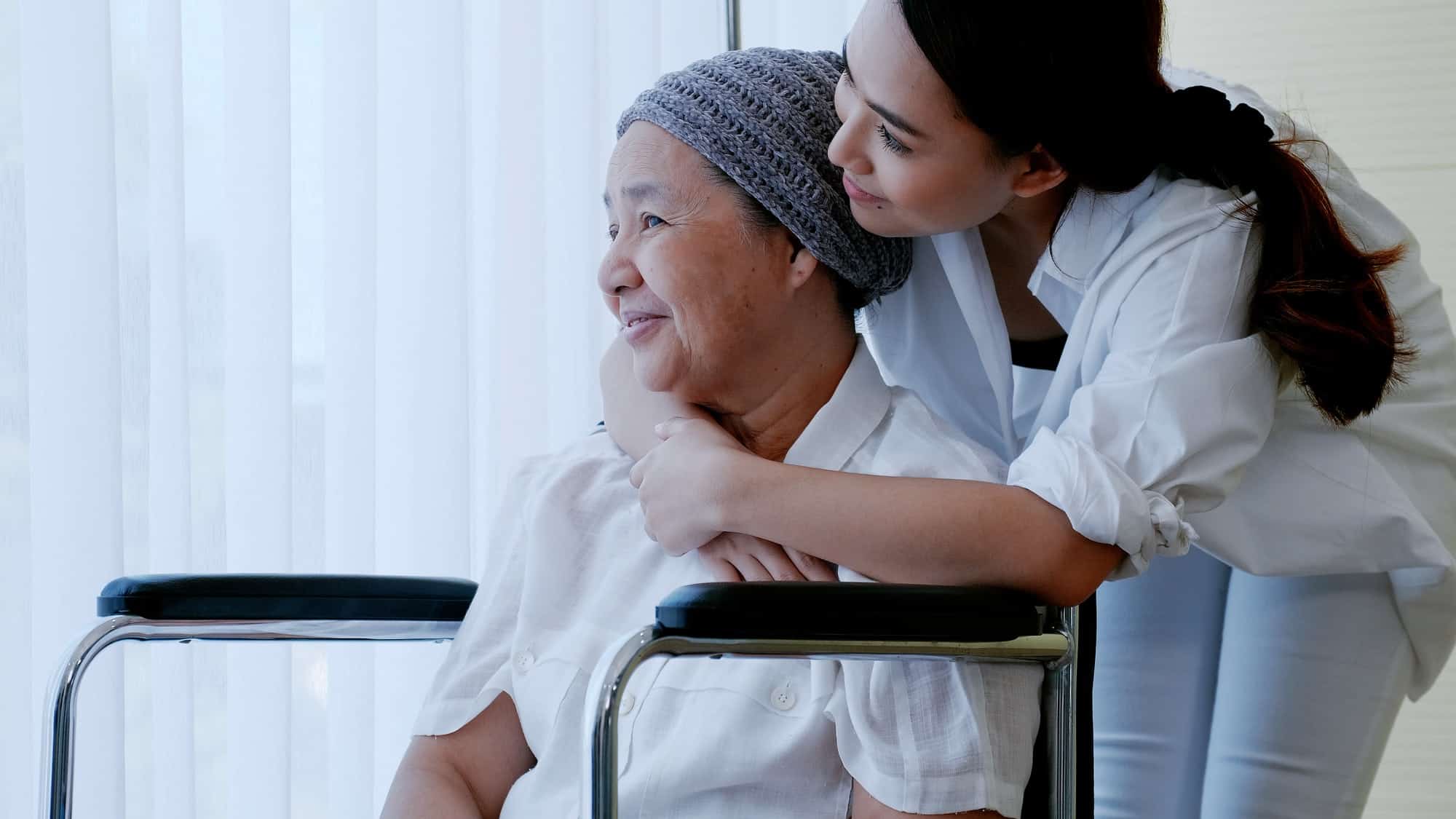Comforting care is a vital part of hospice care at the end of life. It is caring for helping a dying person (like a terminally ill patient).
In comforting a terminally ill patient, the goal is simple.
First, relieve suffering as much as possible. Secondly, improve the quality of life of the patient
while respecting the wishes of the dying person.
If you seek to find the best hospice care in Dallas and how they can bring comfort to either you or your terminally ill person, Ameriprime Hospice care is the option to choose.
When it comes to the end of life care matters, we know the things that matter. We know how to give comfort, what to say and what to do to a terminally ill patient. We know how to make dying easier.
That means we understand how to ensure peaceful death for a patient and give treatment consistent with the dying person’s wishes.
Comforting Terminally Ill People – Peaceful Death Ideology Differs
Ameriprime hospice care knows that peaceful death might mean something different to you compared to someone else. For instance, while a person might want to know when death is near, he can have his final words with his loved ones. Another person might prefer to die quickly and not linger.
In addition, while some other persons may want to be surrounded by family and friends, others may want to be alone. Well, often, ideology on this matter differs.
However, having end-of-life wishes followed, avoiding suffering, and being treated with respect is a shared hope for a dying person.
Generally speaking, dying people need care in four areas. These areas range from physical to mental, emotional, and spiritual.
This article details how the best hospice care in Dallas comforts terminally ill people.
Best Hospice Care In Dallas Offering Comfort Care
1) Providing Physical Comfort
When a person is near death or terminally ill, discomfort can come from a variety of problems. Depending on the cause of the uneasiness and afflictions, it’s essential to make a patient as comfortable as possible.
For example, a dying person can be uncomfortable and restless because of:
-Breathing problems
-Pains
-Skin irritation
-Fatigue
-Temperature sensitivity
Pain:
Watching someone you love pass away is hard enough, but thinking that person is also in pain worsens the experience. When a dying person is experiencing pain, Ameriprime hospice knows how to help. For instance, we are not skeptical or scared of giving as much pain medicine as is prescribed by the doctor.
Pain is easier to prevent than to relieve, and severe pain is hard to manage. Another thing we do is to ensure a level of pain does not get ahead of pain-relieving medicines.
Breathing Problems: Shortness of breath or the feeling that breathing is difficult is sometimes a common experience for a terminally ill patient.
For this, we ensure there is enough ventilation in the room through a humidifier, having windows opened, fans circulating air in the room, etc. Sometimes, pain medications that help relieve the sense of breathlessness are used.
Discomfort: For other kinds of physical discomfort like skin irritation, dryness on parts of the face (such as the lips and eyes), fatigue, and extreme temperature sensitivity, etc., we put palliative measures in place to tackle the problems.

2) Managing Mental and Emotional Needs
Complete end-of-life care includes helping the terminally ill patient manage mental and emotional distress.
When a person is terminally ill, he may understandably feel depressed or anxious. It is important to address emotional pain and suffering for a person in the last stage of life.
At Ameriprime Hospice care, we tackle mental and emotional needs through different means. For instance, by sponsoring conversations that encourage patients. Or offering comfort to a patient through counsel and advice from counselors familiar with end-of-life issues.
For other mental and emotional issues like self withdrawal from people, isolation, or feeling depressed, Ameriprime hospice knows how to bring comfort to patients. One way is through the simple act of physical contact. A touch, holding hands, or a gentle massage – can make a person feel relief and love. In fact, it can be very soothing.
Also, addressing some emotional issues simply requires constant presence and availability. There are times were talking activity is not needed. Only a quiet presence can be a profound gift for a dying person.
3) Spiritual Needs at the End of Life
A person with a terminal illness nearing the end of life may have spiritual needs as important as physical challenges. Spiritual needs include having life-after-death questions answered according to a patient’s beliefs. Ending disagreements with others, resolving unsettled issues with people, etc.
These persons can be helped by having them pray and talk with someone from their religious community. In addition, they can get to listen to religious music.
Similarly, family and friends should be allowed to share the memories of their good times with the patient.
Conclusion
Hospice care is for a terminally ill person who is generally expected to live six months or less.
This, however, does not mean that hoWe will provide hospice care for six months. Instead, medical professionals can provide the care as long as the patient’s doctor and hospice care team certify that the condition remains life-limiting.
Ameriprime Hospice as a hospice agency is one of the best hospice care in Dallas for comforting a terminally ill person.
Whether the issue for this patient is physical, mental, emotional, or spiritual, Ameriprime Hospice care is a great option to select.
Reference: End of Life




